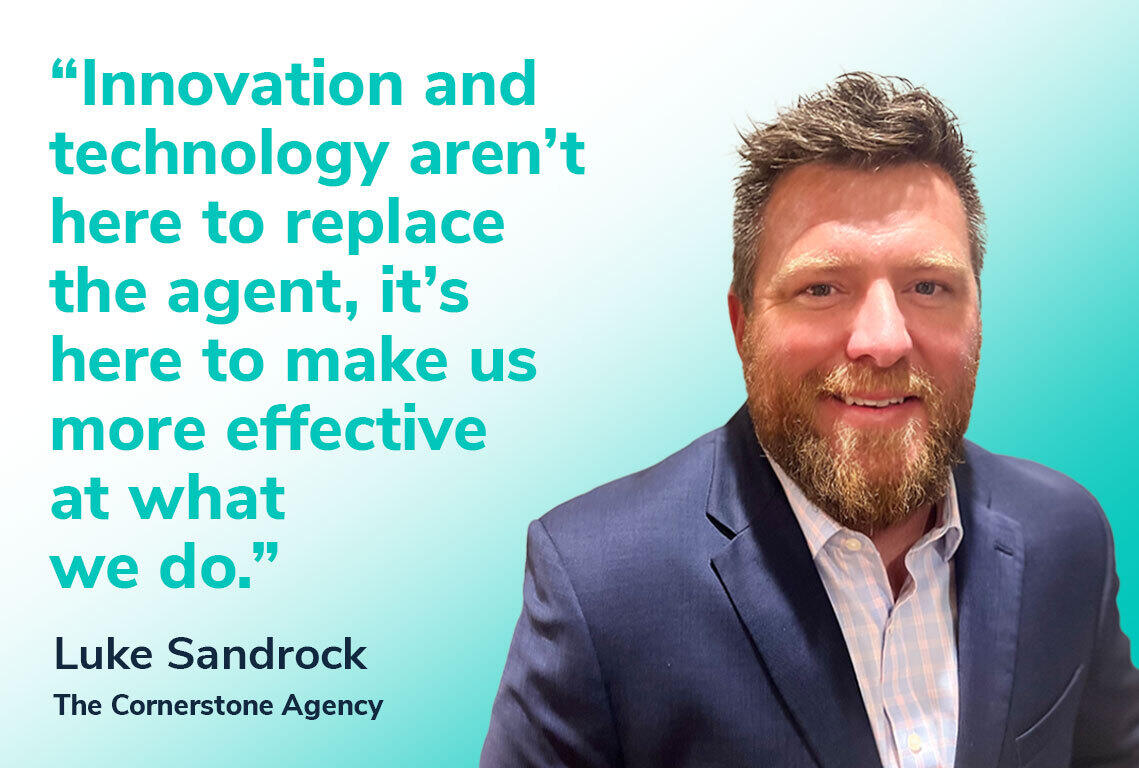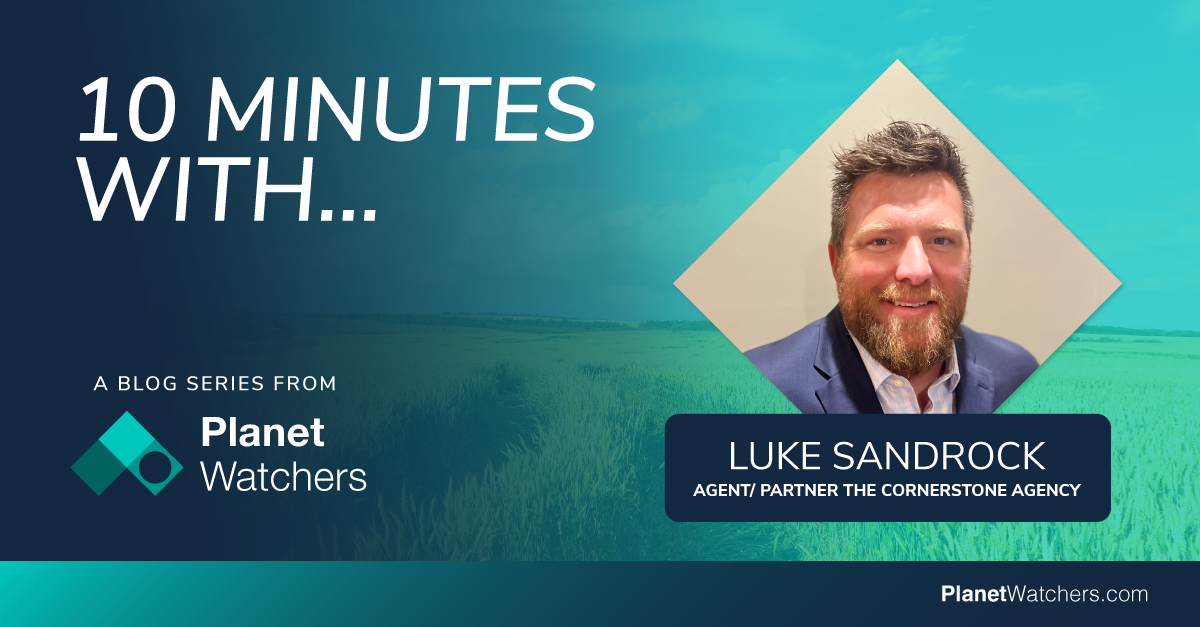As part of our series ‘10 minutes with…’ we recently interviewed Luke Sandrock, Agent / Partner at The Cornerstone Agency to gain his insights on the crop insurance industry and how it has fared in the past 12 months. Luke also discusses his hopes for the future of the industry, including the need for innovation in the face of digital transformation and how agents and companies that embrace change are more likely to thrive in the future.

An excerpt from Luke Sandrock’s interview for PlanetWatchers
(PW): What attracted you to the crop insurance industry?
(LS): The people. I thoroughly enjoy working with people not only in the crop insurance business but also with my farm clients. In an industry that’s often perceived as slow to adapt, farmers and ranchers are some of the most innovative business owners.
(PW): How would you sum up the last 12 months in the crop insurance industry?
(LS): High stakes. For many farmers, this will be the most expensive crop they’ve ever put in the ground. Volatile weather and high input costs put pressure on the crop insurance industry to not only inform farmers and ranchers of risk management options but also execute those strategies.
(PW): What are your hopes for the future of the industry?
(LS): Whether it’s risk management options or value-added services, I hope that the industry continues to innovate in ways that are actual priorities to the end user (the farmer). We’re all guilty of developing impressive tools before asking if it’s actually something that’s useful to farming operations.
(PW): Which upcoming changes in the industry are you the most excited about?
(LS): Opportunity. Crop insurance has been relatively slow to feel any digital transformation due to government regulations, as well as large in-force books which would require a large effort to change processes and mindsets. The industry is ripe for change and innovation. Solutions are needed for problems that our customers face on a daily basis including weather and larger global events impacting American farmers and ranchers. Crop insurance agents and companies that fail to adapt, or choose to stay in the status quo, will weaken under the pressure exerted by those that use digital technology, analytics, and data to offer more impactful risk management solutions and platforms to their clients. Those agents and companies that embrace change and innovation within the crop insurance space will survive the future digital transformation that is coming not only within crop insurance but the insurance industry as a whole. Innovation and technology aren’t here to replace the agent, it’s here to make us more effective at what we do.
(PW): What is the biggest challenge that you can help producers overcome this year?
(LS): Like many years it will be providing a reliable backstop if/when necessary.
(PW): Which qualities in your job role do you think are the most important?
(LS): Trustworthy, knowledgeable, dependable, and empathetic.
(PW): In an industry where it can be difficult to differentiate, what makes your organization stand out?
(LS): I think it’s our commitment to understanding each operation we work with. Every farming operation is unique and they all have different priorities. Our attempt to truly engrain ourselves in that operation and anticipate individualized potential outcomes hopefully gives us and our clients a competitive edge.
(PW): What is your proudest achievement in the crop insurance industry?
(LS): It may sound cliché but anytime we can help a client navigate through a disaster and get them back to square one, it’s an achievement.
(PW): Describe the crop insurance industry in one word.
(LS): Resilient
Focusing exclusively on crop insurance in North America, PlanetWatchers tells the story of every field saving our customers time and money by enhancing policy and claims validation.

